AS ONE of Singapore’s most successful fashion entrepreneurs, Charles Wong – of the eponymous label Charles & Keith – should not be a stranger to the spotlight.
Yet the 50-year-old has deliberately kept a low profile. The last time he gave a sit-down media interview was some 14 years ago.
“I wanted to spend more time focusing on the business. I didn’t want any publicity for myself for a long time,” Wong tells The Business Times.
His younger brother and co-founder, Keith, is just as elusive. The siblings are rarely photographed in the public eye, whether together or apart. Neither is on social media.
But their work in building Charles & Keith into a global fashion empire has called the older Wong to take the stage at last. Wong, who is co-founder and chief executive of the group, clinched the top accolade, Businessman of the Year, at this year’s Singapore Business Awards.
Over the last decade, Charles & Keith has only grown bigger and more confident of its place in the fast-fashion world.
It has won over legions of global consumers for its ability to deliver high-quality, stylish products without breaking the bank. A-list celebrities from Selena Gomez to Blackpink’s Jennie have been spotted donning the brand’s shoes, causing brand equity to skyrocket.
Today, Charles & Keith has nearly 700 retail stores in over 30 countries and ships to almost 60 markets. The group posted close to a billion dollars in revenue for its financial year ended March 2023, according to a filing with the Accounting and Corporate Regulatory Authority. Overseas sales form about 90 per cent of group revenue, says Wong.

Finding his footing
For someone of his standing and fortune, Wong appears remarkably down to earth, simply clad in a black hoodie and casual pants for this rare interview at his Tai Seng headquarters.
Last year, the Wong brothers were ranked 35th on Forbes’ list of Singapore’s 50 Richest, with an estimated combined net worth of about US$1.3 billion.
“I’m no different from anyone,” says the entrepreneur, who speaks in measured tones.
The brothers had modest beginnings. Growing up, the older Wong had little interest in school. His mother’s small shoe shop in Ang Mo Kio felt more like home; there, he cut his teeth in the footwear trade and discovered his calling.
In 1996, the Wong brothers established shoe store Charles & Keith in the former Amara Shopping Centre. They ditched the conventional model of buying from wholesalers and created their own shoe designs. That gave them an edge over their competitors, and their wide variety of trendy women’s footwear – priced in the low-to-mid range – became a hit with consumers.
Overseas expansion was swift. The brand entered other parts of South-east Asia in 1998, before venturing to markets such as Australia and the Middle East. It became the first Singapore retailer to set up its e-commerce website in 2004, later expanding into bags and accessories. In 2006, it launched men’s shoes and accessories sister brand Pedro.
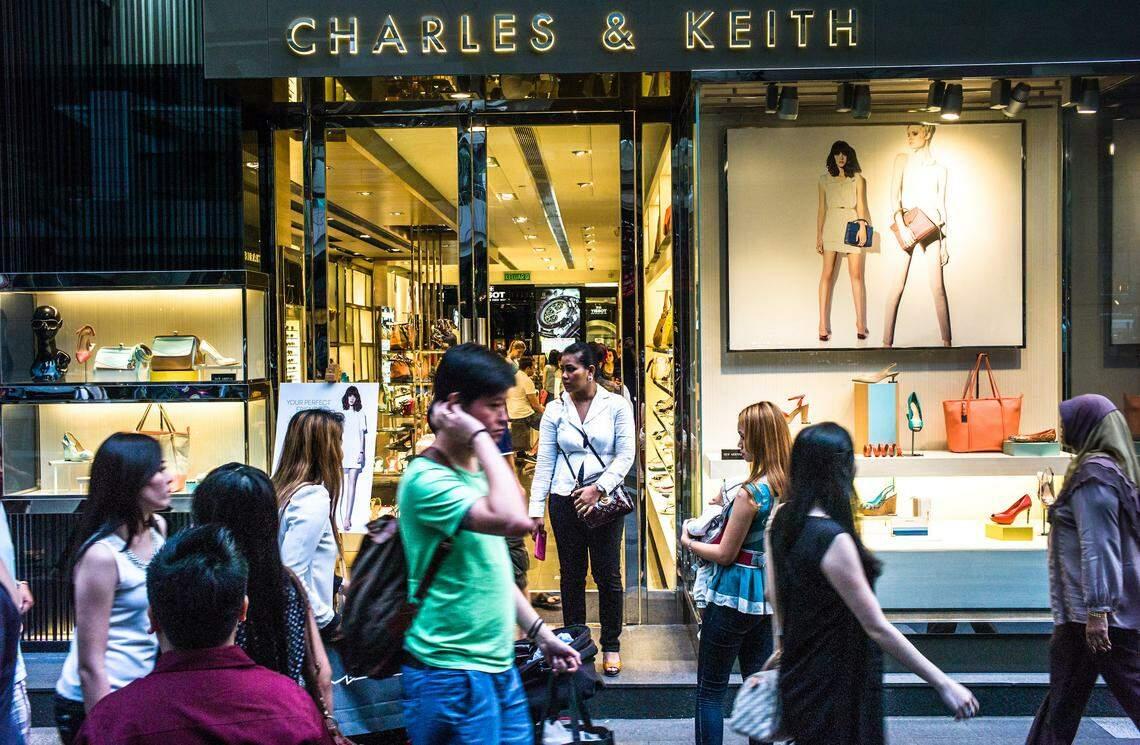
“We never really thought about success,” says Wong, who was just 22 when he started the business. “We were just working really hard – making sure we can make the best product, get the best costing…We paid ourselves the bare minimum because we didn’t raise any capital at the start.”
Eventually, the world began to take notice of the rising shoe label and its makers. But Wong began to tire of the attention. “I was getting a lot of awards and interviews, and that sort of disrupted my work.”
As China rose as an economic superpower, he was constantly confronted by the media on his business strategy for the market, for which he had no answers. “The question asked at that time was: ‘When are you going to China? What’s the plan?’ And I kept giving the same excuse: ‘Oh, China is in my plans’ – but they were never (carried out).”
Cracking the Chinese market
In 2010, Wong packed his bags and headed for the world’s second-largest economy.
What was meant to be a brief stint, however, turned into a decade-long residency in Shanghai. “I did not realise it would take me 10 years to crack the market,” he admits.
To support this expansion, the brothers sold a 20 per cent stake to L Capital Asia, a private equity fund backed by French luxury giant LVMH, for more than US$30 million in 2011.
Wong restricted his trips back home to just one day each month. He would arrive on a morning flight for a meeting at headquarters, before flying out by midnight.
He intentionally kept creature comforts at bay. “If you’ve only one day, you don’t have a choice but to leave (right away). But after two or three days, you might say: ‘Actually the bed is quite comfortable; then there’s the food, parents, friends,’” he quips.
A little extreme, perhaps? For Wong, there is no middle ground: “I’m a person who doesn’t have a regulator. Either I go all the way, or not at all.”
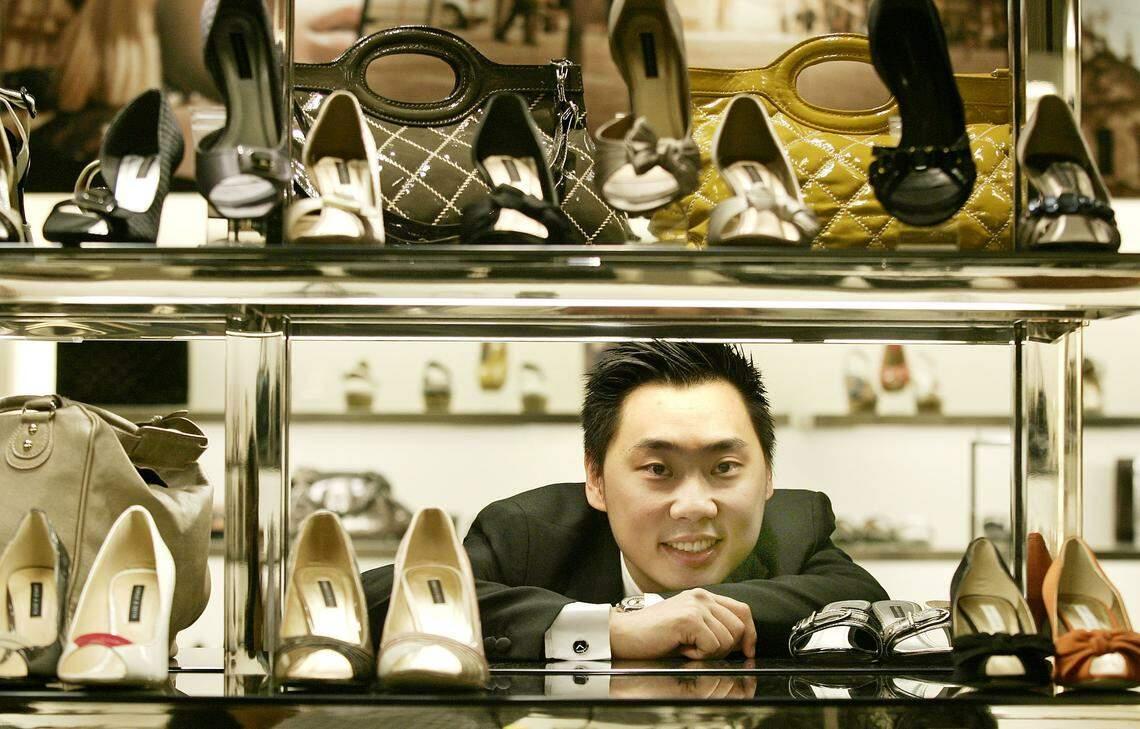
The time spent in China was crucial. Wong needed to understand the fast-changing retail landscape, which saw “50 to 100” shopping mall openings per year.
His all-or-nothing approach paid off: More than 250 Charles & Keith stores now dot China’s landscape, from major cities to small provinces.
Elevating brand image
Delve into his personal life, however, and Wong is more guarded. The father of two declines to divulge his favourite fashion label when asked, citing the question as a “private” one.
What he does share is his love for nature, cycling and lemon trees – abundantly planted in his home and around the group’s compound in Tai Seng.
A simple lifestyle is enough for him, he says, adding that he is “not built for” social media. But he sees TikTok and Instagram as tools for knowledge and browses all kinds of content, “from cooking to cycling”.
Wong’s business priorities have shifted with age. He used to measure success by the number of stores Charles & Keith could open in a year, or the designs it could get out to market in a short time.
“When I was younger, I tended to be more aggressive, and I wanted to expand, expand, expand. I wanted to hit maybe 800 or 1,000 stores.”
Today, he is more focused on elevating the brand’s image to its core customers, especially those in Asia.
“Counting the numbers doesn’t really excite us anymore,” he says. “What excites us is opening good stores that build the brand, so the new stores we build have to be nicer and more experiential. What’s more relevant is how we connect with our customers.”
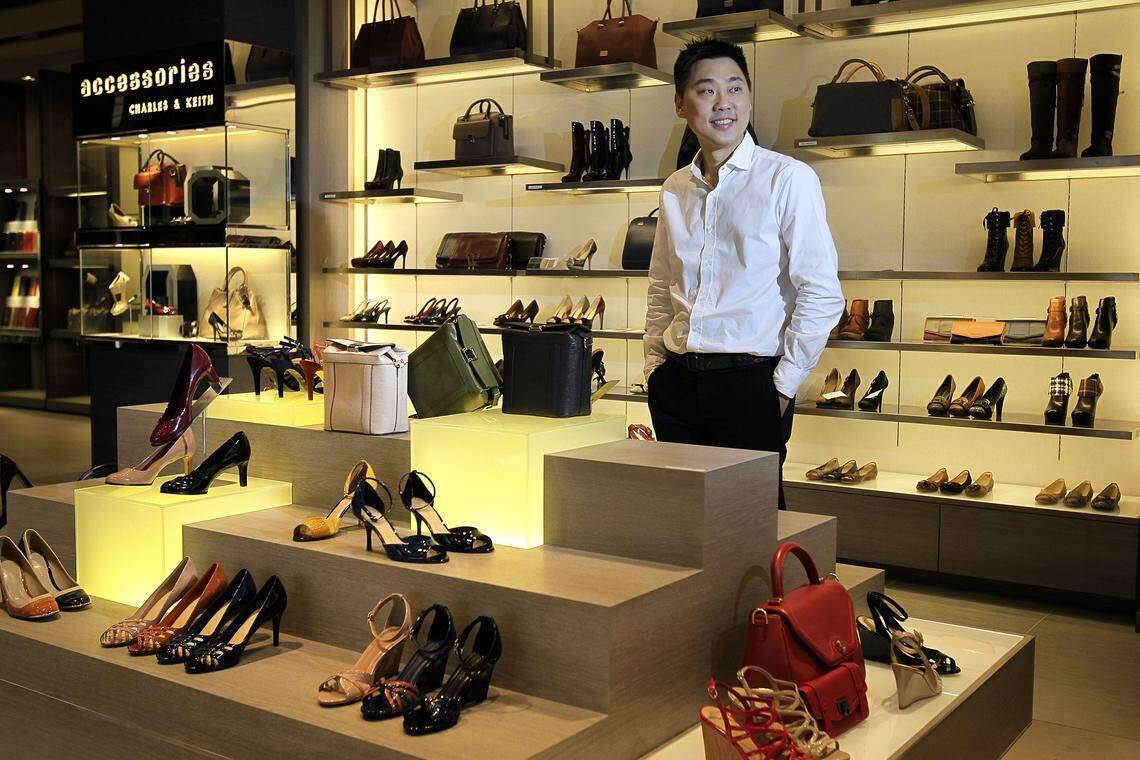
The Wong brothers have been consolidating ownership of the brand for better control of the quality of the operations.
In 2016, they bought back their stake from L Capital Asia. They also rejected a higher offer from another investor to buy over these shares, reveals Wong.
The brand is now fully owned by the Wong family. Youngest brother Kelvin has also joined the business.
In 2018, Charles & Keith bought back its franchisee stores in South Korea, Japan, Taiwan, Hong Kong and Macau. Wong says taking on direct operations allowed the brand to exit stores that did not fit its brand image – even if they were profitable – and leave online marketplaces that were flooded with discounts.
Asia’s mature retail scene has given the brand leeway to experiment with creative retail concepts.
Its newest flagship duplex outlet in Shibuya Center-Gai, Tokyo, is testament to this. It was designed by David Chipperfield Architects, which has worked on the boutiques of luxury labels such as Valentino and Akris.
The brand also revamped its flagship outlet at Ngee Ann City in end-2022. It now boasts sleek, minimalist interiors and an in-store personalisation service, like its other concept stores in South Korea and Japan.
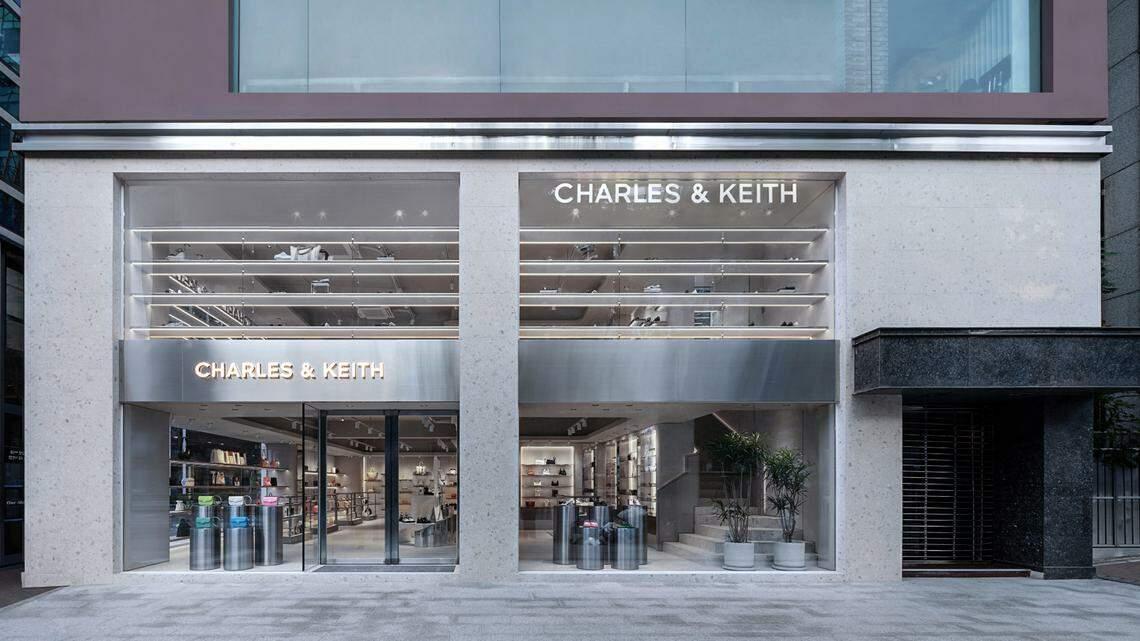
A sweet spot in ‘affordable luxury’?
With these investments, Charles & Keith seems to be strengthening its positioning in the “affordable luxury” space – a label it became associated with after Singapore teenager Zoe Gabriel went viral on TikTok in 2023 for calling her Charles & Keith bag “luxury”.
When asked about this, Wong sets the record straight: “We are not a luxury brand.”
Neither does he like using the term “affordable” to describe the brand’s aspirations. To him, affordability typically comes at the expense of other attributes – say, creativity or sustainability – that the brand prioritises.
“If I say affordability is the most important (factor), then we’ll need to go very, very low. But sometimes, using sustainable materials can be expensive.”
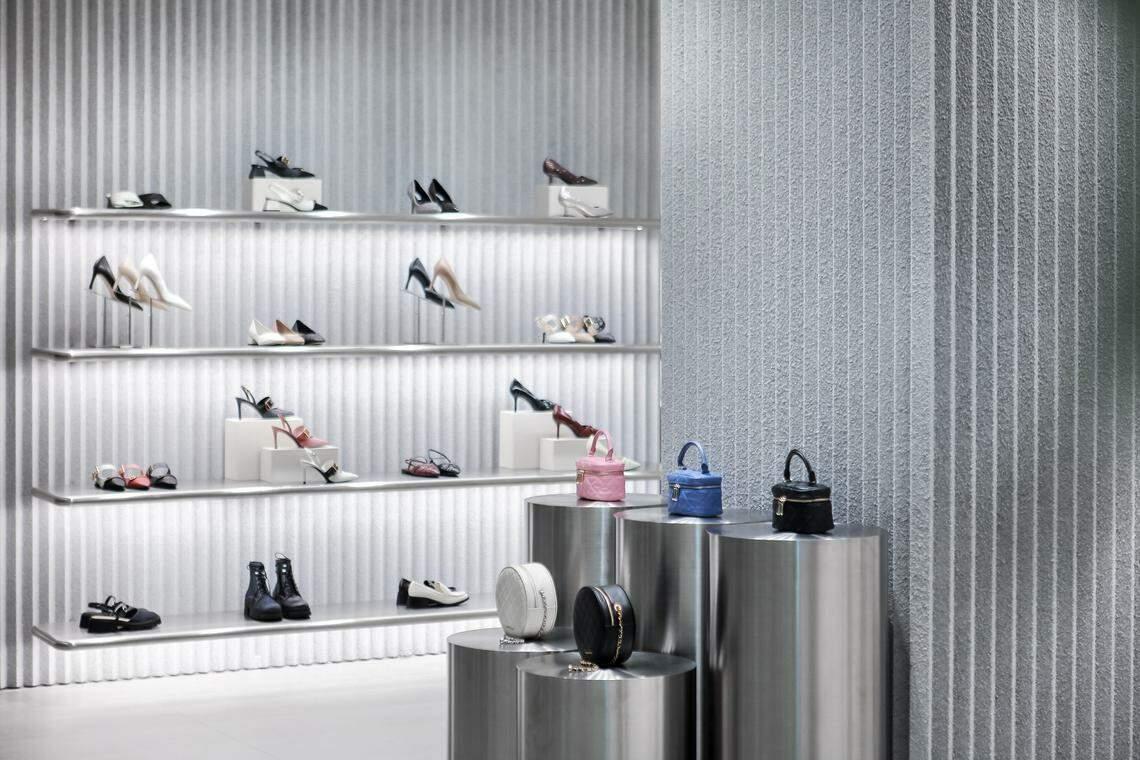
Wong is aiming to grow Charles & Keith’s online presence in the United States and the United Kingdom, and eventually open stores there. These markets contribute about 3 per cent of total group revenue; he hopes to bring this share up to 30 per cent.
Despite what the brand’s name suggests, Wong is quick to point out that Charles & Keith is not a one-man – or even two-men – show.
He insists on paying tribute to the many teams of talented and creative colleagues within the organisation – marketing, data, design, merchandising and more – who have helped build the business.
“That’s why I don’t like to do interviews; it’s as though I’m the only one handling everything behind the scenes… I only know some things, but I don’t know everything.”




